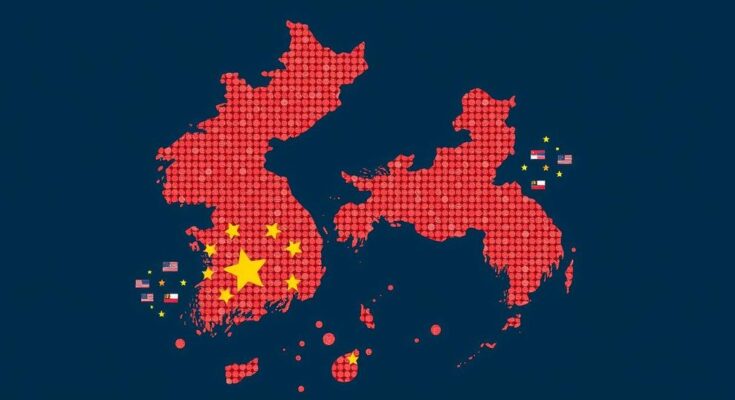Chinese President Xi Jinping has voiced concerns over instability on the Korean peninsula, signaling Beijing’s unease amid rising geopolitical tensions. His comments reflect China’s challenges in managing its relationships with North Korea and Russia while countering the military alliance among the U.S., Japan, and South Korea. This situation underscores China’s dual objectives of maintaining regional stability and asserting its influence over the unfolding geopolitical landscape.
In a recent statement during the Asia-Pacific Economic Cooperation (APEC) summit, Chinese President Xi Jinping expressed significant concern regarding the elevated risks of instability on the Korean peninsula. This warning reflects Beijing’s anxiety about potential geopolitical instability, particularly in light of former U.S. President Donald Trump’s anticipated return to the political arena. Xi asserted, “China does not allow conflict and turmoil to happen on the Korean peninsula. It will not sit idly by when its strategic security and core interests are under threat.”
This commentary arises amid increasing tensions related to North Korea’s nuclear activities and troop deployments in support of Russia amidst its ongoing conflict in Ukraine. China is faced with the challenge of managing its relationships with both North Korea and Russia, while simultaneously addressing external pressures for accountability regarding these alliances. Additionally, Xi’s remarks highlight the challenges posed by the strengthening military alliance between the United States, Japan, and South Korea, which is perceived by Beijing as a direct threat to its regional influence.
Experts interpret Xi’s comments as a rare acknowledgment of the threats that escalating tensions on the peninsula pose to China’s national interests. Lee Seong-hyon, a South Korean scholar at Harvard University, noted the statement’s strategic implications, emphasizing that it underscores Beijing’s dual objectives: preserving stability in the region while asserting its influential role in the evolving geopolitical landscape. Xi’s warning is indicative of the intricate balancing act China must perform as it navigates increasing pressures from both allies and adversaries in the region.
The Korean peninsula has been a focal point of geopolitical tension, primarily due to North Korea’s continuing development of nuclear weapons and its unpredictable military actions. China’s position as North Korea’s ally complicates its foreign relations, especially in the context of rising pressures from the United States and its allies. The potential return of Donald Trump to the U.S. presidency is likely to exacerbate these geopolitical dynamics, prompting concerns about increased volatility in the region. Xi Jinping’s recent remarks serve to demonstrate China’s proactive stance in mitigating threats to its national interests amid these evolving challenges.
In conclusion, President Xi Jinping’s warning about the Korean peninsula not only reveals China’s growing apprehension regarding regional instability but also highlights its efforts to maintain influence amid increasing geopolitical pressures. With the U.S. bolstering alliances in Asia and North Korea pursuing aggressive military strategies, China finds itself navigating a complex diplomatic landscape. Xi’s comments serve as both a call for stability and a reminder of China’s pivotal role in shaping regional dynamics.
Original Source: www.scmp.com




